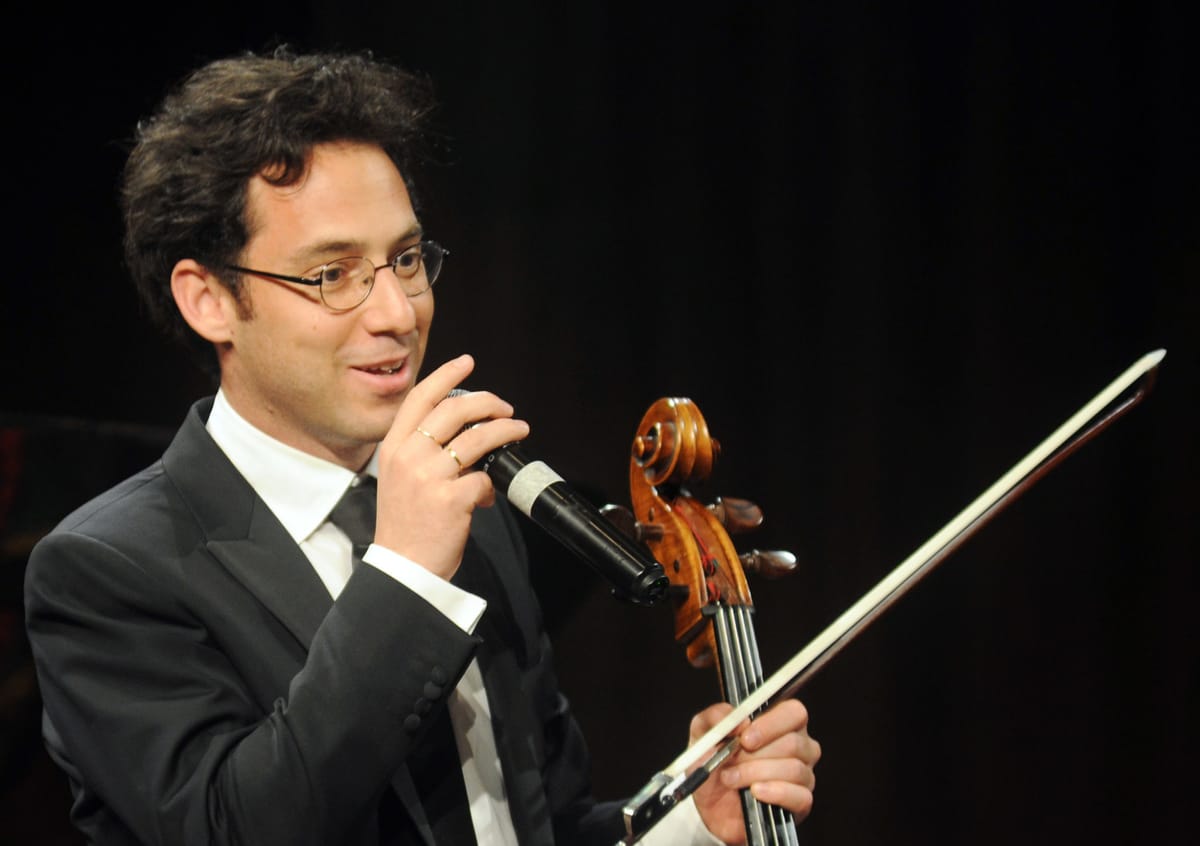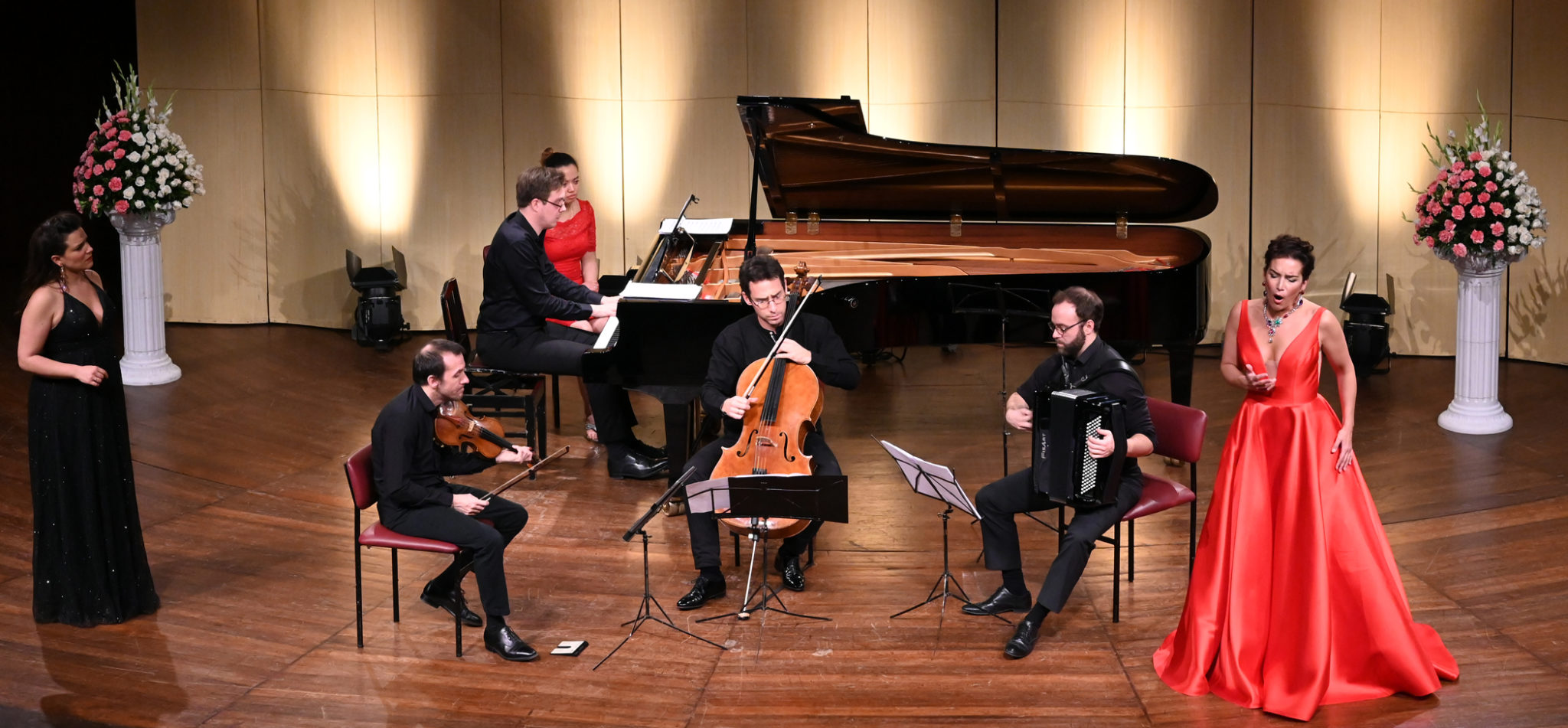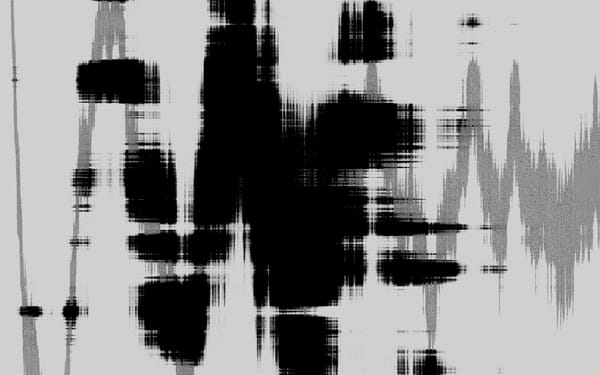The Music Will Go On

As countries gradually lift restrictions, it has become easier to believe that the enriching experience of attending a live concert is not a distant reality. Gauthier Herrmann, who founded the Artie’s Festival in collaboration with the NCPA, tells us how his chamber music ensemble has been adapting to the situation. By Beverly Pereira
The fear and uncertainty associated with the ongoing COVID-19 pandemic and the resultant lockdowns across the world have effected losses on both the micro and macro scale. Its impact on the live music industry, for one, is still hard to estimate, but its effects are certainly palpable. With the closure of most performance venues across the world, tours, festivals and entire seasons were cancelled mid-way or long before they had even begun. French cellist Gauthier Herrmann and his chamber music ensemble – the Artie’s – have been visiting India twice a year since 2008. The biannual Artie’s Festival, a collaboration between the NCPA and artistic director Herrmann, is a fixture on the Western classical music calendar of Mumbai. But like other concerts that were scheduled to take place in its venues, the NCPA was forced to cancel the March edition of the festival this year.
Life under lockdown
With lockdown restrictions well in place since late March in both India and France, where Herrmann lives with his family, travel was out of the question. Besides the concerts in India, he had to cancel 41 others that were slated to take place in Kuwait, Saudi Arabia, the U.A.E., Switzerland, Australia, New Caledonia and various regions in France. Speaking to us from Switzerland, Herrmann, who played his last pre-lockdown concert on 8th March, says, “Most of our summer tour concerts were also cancelled.”
But the initial days of the lockdown did bring some respite from the frenetic pace at which the world functions. As the shelter-in-place order and work-from-home situation became the norm, it was as if people across the world were collectively finding an odd sense of comfort in activities like baking or journaling. Some, like Herrmann, found solace in spending quality time with their loved ones. “To be honest, the lockdown has been a fantastic time as we spent three months together as a family. It was just the four of us – my dear wife Mathilde and our fantastic daughters Indiya and Augustine,” says Herrmann, who otherwise lives out of his suitcase, performing with his travelling ensemble across the world.
Yet, as strict as the lockdown regulations were, they did not allow for creativity to be curtailed. Members of reputed orchestras tuned their instruments ahead of livestreams that enthralled patrons with virtual recitals. The world was also privy to a slew of songs born out of virtual collaborations between musicians playing out of their home studios or living rooms. Herrmann and his ensemble also collaborated with musicians during this period.
“We received a crazy number of requests for ‘confinement concerts’, which means you have each artiste playing in their own home, after which the final piece is edited. I only accepted two of them as I don’t really like the idea that this can slowly replace the experience of a concert and of sharing moments in real life.”
What Herrmann and his group of musicians did thoroughly find themselves engaged in, though, were recordings – live recitals, as it were, recorded on stage but without an audience. “A few countries requested real concerts. These were shot in France. This was a great artistic project as we took the time to record and shoot fantastic pieces not only by Beethoven. It was a nice way to celebrate Beethoven’s 250th birthday,” he says. These performances will be available to the public in the near future once the exclusivity period ends. In store are beautiful recordings of the first movement of Beethoven’s famous Spring Sonata and the first movement of Piano Trio Op.1 No. 3, with Herrmann on cello, his wife Mathilde on violin and Emmanuel Christien on piano.
Music in the time of crisis
The European summer is in full swing, and the Artie’s would have ideally been performing every other day. Yet, Herrmann believes that the situation is not so bad at the moment, considering the fact that the group has already performed at 10 live concerts so far. It has been a few good months – since 28th June to be precise – for the Artie’s group has started to perform to live audiences at physical concerts as part of what Herrmann calls the Vault Concerts. Catering to a very small audience, this series of concerts is hosted in both fascinating spaces like cathedrals and conventional venues alike. “The programmes went well and we performed the Beethoven String Trio Op. 9 No. 1 as well as an amazing arrangement of Poème by Ernest Chausson for violin, cello and accordion,” he says of the recitals that took place in the south of France over the last two months.
The Vault Concerts are not exactly a product of the pandemic, though. They were planned over a year ago, but many of them eventually took shape only towards the end of the lockdown. “We have great luck in France with so many beautiful venues like churches and castles where we can perform.” Another crucial factor that makes all the difference in this time of social distancing is that the Artie’s group performs chamber music at its core. The ensemble almost always comprises a small number of musicians as opposed to a regular full-size orchestra. “It’s one of the fantastic possibilities of chamber music – you can share it anywhere and it is very easy to move.”

It is natural to wonder whether connections and intimacy between the artistes or even with the audience are lost in these times of physical distancing when wearing a mask is the norm. “Connections are not lost at all as we rehearse a lot and don’t wear masks for our chamber music concerts. Of course, to see 50 per cent of the audience wearing a mask is something that we could never have even imagined a few months ago and it’s very strange. The distancing requirements do affect the feeling of proximity. But, for now, in France, when we play at smaller venues, it’s still a bit free. And this means that people can choose the kind of distancing they want to keep,” he explains.
For these musicians, the return to the stage – to some semblance of normalcy – has made them realise how music is so important and valuable to the people. “It is fantastic to speak with the audience after the concert and to hear how they miss music so much,” says Herrmann.
Looking forward
Given that Herrmann has been visiting India twice, often, thrice a year for over a decade, I was curious to know what went through his mind when he had to cancel what would have been the 25th edition of the Artie’s Festival earlier in March this year.
“India and the NCPA are very important to me and my team. While we had to cancel tours in many countries, I can very honestly say that the worst part of it was to cancel the Artie’s Festival in India. It has been a part of my life for the last 13 years. In fact, the programme, focussed on Beethoven’s 250th birthday with my dear friends Pierre Fouchenneret and Romain Descharmes, was something I was really looking forward to sharing with the audience at the NCPA.”
As of now, there is no real clarity on whether regulations will permit international travel or the opening up of concert venues to the public in India come November when the second edition of the Artie’s Festival takes place. But, the French cellist shares a few things that we all need to hear in these times of uncertainty. “I’d be ready to jump on a plane as soon as it becomes possible. Even if we cannot organise concerts with a full audience at the NCPA in November, I hope we can at least organise the festival in a different format,” he says, suggesting having multiple concerts in a day with fewer people in attendance. “Even though it will never ever replace the joy of a live concert, another option could be to record a few programmes at the NCPA and then make it available to the NCPA audience first and later as a stream in collaboration with channels like Mezzo or Medici.tv,” Herrmann concludes on an optimistic note.
This piece was originally published by the National Centre for the Performing Arts, Mumbai, in the September 2020 issue of ON Stage – their monthly arts magazine.






